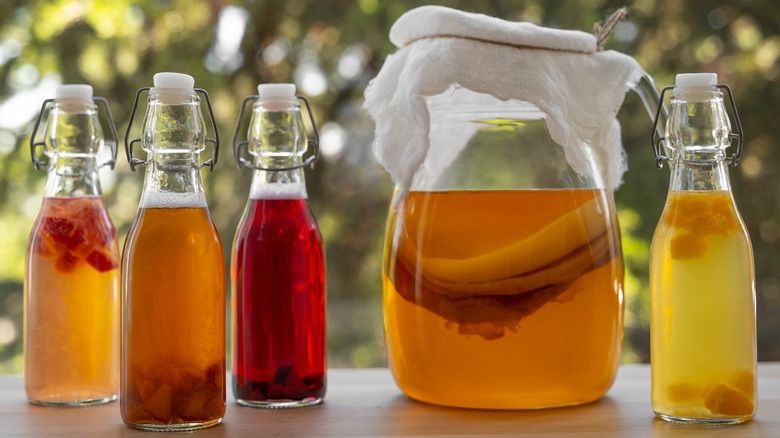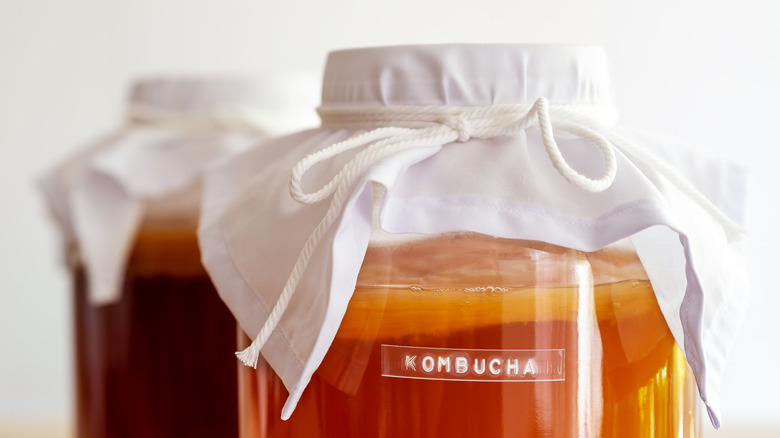Is Kombucha Safe To Drink After It's Been Frozen?
Kombucha is the carbonated probiotic superdrink we all know and love, but if your eyes are too big for your stomach, you may find yourself with more of it than you know what to do with. If you're looking at long-term storage options, freezing is probably one of the first things to come to mind. But, while freezing kombucha is perfectly safe, it does come with some caveats.
One of the main health benefits of drinking kombucha comes from the healthy bacteria and yeast cultures swimming around inside. They're good for your gut and can help combat inflammation, among other things. But those benefits aren't going to be available anymore if the cultures are no longer alive. If you freeze your kombucha the wrong way, there's a very good chance that the bacteria and yeast within is going to die in the process. Even if the cultures do die, your kombucha is still safe to drink — but it's certainly not ideal since most of the health benefits will have disappeared.
There is a way to freeze kombucha so that the living cultures are less likely to die, but they won't survive frozen forever even if they make it through the initial freezing process. Drinking kombucha when it's fresh is the best way to ensure that you're getting all the health benefits you're looking for. That said, with just a little know-how you can use a process called flash freezing to keep your booch alive and well for up to three months.
Flash freezing kombucha
If you were to place your kombucha directly into the freezer and allow it to freeze over, that would be called slow freezing. The temperature of the kombucha would gradually lower until it reached its freezing temperature. This is fine for most food but this will almost certainly kill your booch's bacteria and yeast — one of many mistakes you want to avoid when making kombucha. To flash freeze your probiotic drink, you'll want to grab a bowl of ice and place the bottle inside.
After the kombucha has cooled off, add ¼ cup of salt and fill the bowl with water. The salt is going to lower the freezing temperature of the water, allowing it to stay liquid at much lower temperatures than it would otherwise. This will speed up how quickly your kombucha reaches its freezing temperature, locking the live cultures in ice before they've had a chance to die off. Make sure you use a freezer-safe, airtight container to freeze your kombucha in.
Glass should work just fine, but the drink will expand as it freezes so leave an inch or so of empty space in the bottle to accommodate for that, otherwise, it might explode. When you're ready to drink it, place the bottle in the fridge for a few hours until it's thawed. While kombucha can be frozen, the quality will start to deteriorate after a couple of weeks and the cultures will likely have died after three months. Even if you accidentally wait longer, your kombucha will still be safe to drink, but, again, you won't be getting the health benefits.

